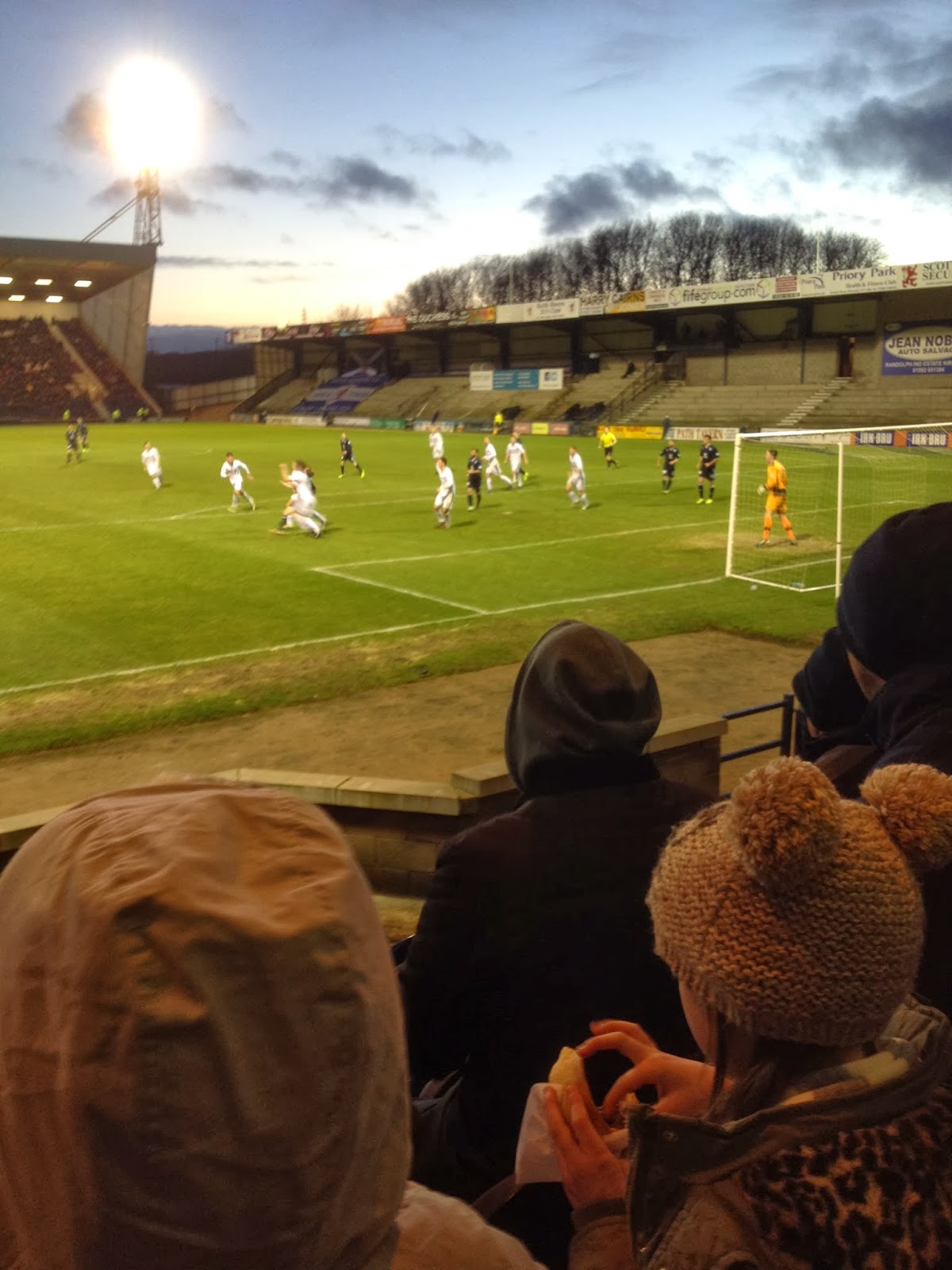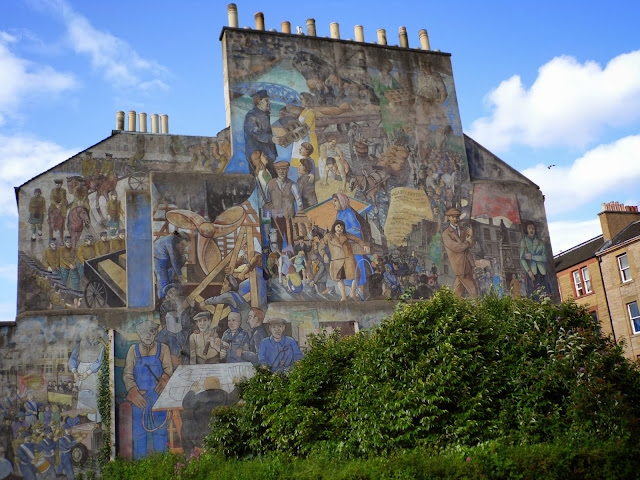We're up in Edinburgh for our summer holiday and yesterday my wife had to go to an optician to buy a new pair of reading glasses because she'd lost her only pair on our travels.
I lose and break my reading spectacles so frequently - twice a week at least - that my optician is now the cut price store where I can buy a pair for £1 rather than the £70 I would pay at the optician's. My wife on the other hand is more careful about her sight and seldom loses her specs and a rare event like this does not threaten to break her bank. So, having bought a 'make do' emergency pair at the cut price store my wife, with me in tow, headed to the optician's store which was one of a chain widely advertised on television.
Once at the store, a sight test was administered, a new pair of specs were prescribed and in order to pay for them we sat across a desk from a saleswoman to complete the deal. This is the time when not only do you have to pay the very attractive advertised price which drew you into the shop in the first place but you are also encouraged to insure your goods at an additional cost and you are introduced to other extras you might care to purchase.
While we were navigating through this, the saleswoman noted that we lived in Devon and while she said nothing when my wife spoke, she did observe when I spoke that my accent was not from south of the border. I responded with an old chestnut,
"Naw, Eh come fae Dundee, but Eh dinnae let on."
"Ah," she says, "that explains the 'Yes' badges." My wife and I were both wearing small lapel badges with the word "Yes" on them which signifies our support for a vote in favour of Scottish Independence in the forthcoming referendum. I thought for a brief moment she was suggesting that my being from Dundee meant I had more of a propensity to support independence, but eventually decided that she was establishing a connection between a couple living in England and their wearing of 'Yes' badges.
"Well, I don't know," she continued, "I'm tempted to vote 'Yes' but I'm fearful about what Westminster can do to us if we do vote 'Yes'".
"The Westminster government seem very keen to keep a hold on Scotland," says my English wife. "Scotland must have something that London wants."
"Yes, and if we vote 'Yes' they might take it all away from us."
"Doesn't 'it' belong to Scotland ? Why should 'it' be taken away, wouldn't that be theft ? asks my wife.
"Well," replies the saleswoman, "it's all a bit more complex than that. My heart says 'Yes' but my head says 'No'."
I had tried not to be involved in the conversation up to now but I've never been able to stop myself from saying something when an 'adult-like' figure implies I am too much of a child to know about grown up things.
"The thing is," says I, "Scotland has so many natural resources with the potential to produce more than enough renewable energy for itself, while selling the surplus off to other countries. It may be the potential profits from that surplus attracts the City of London and its friends in a certain party in the Westminster government. I think Scotland on its own will have a very sound economy for many decades to come."
The saleswoman's mouth widened into a very tight thin smile. It was apparent to me that I hadn't made a convert to the "Yes" campaign. I wished I hadn't closed things off in such an abrupt way. I thought what I had said was valid but by being so pedantic and 'adult-like' myself I'd been hoist by my own petard.
When we talked about this exchange later my wife and I agreed that we had known fairly early on in our exchange with the saleswoman we were in the presence of someone who did not want an independent Scotland and that we respected that position even if we disagreed with it. What surprised us was that the saleswoman did not trust her heart to say how she might vote. She trusted only her head and while we might not agree with what her head was telling her we felt that in the end all human action has its wellspring in the heart as well as the head and maybe we didn't need a pair of reading spectacles to see this.
* Answer to caption question. All of them were bought by me for me in the £1 store but I do not recommend this method for those who have a care for their eyesight. Always seek qualified help.
I lose and break my reading spectacles so frequently - twice a week at least - that my optician is now the cut price store where I can buy a pair for £1 rather than the £70 I would pay at the optician's. My wife on the other hand is more careful about her sight and seldom loses her specs and a rare event like this does not threaten to break her bank. So, having bought a 'make do' emergency pair at the cut price store my wife, with me in tow, headed to the optician's store which was one of a chain widely advertised on television.
Once at the store, a sight test was administered, a new pair of specs were prescribed and in order to pay for them we sat across a desk from a saleswoman to complete the deal. This is the time when not only do you have to pay the very attractive advertised price which drew you into the shop in the first place but you are also encouraged to insure your goods at an additional cost and you are introduced to other extras you might care to purchase.
 |
| *Which of these spectacles were bought in the £1 store ? |
While we were navigating through this, the saleswoman noted that we lived in Devon and while she said nothing when my wife spoke, she did observe when I spoke that my accent was not from south of the border. I responded with an old chestnut,
"Naw, Eh come fae Dundee, but Eh dinnae let on."
"Ah," she says, "that explains the 'Yes' badges." My wife and I were both wearing small lapel badges with the word "Yes" on them which signifies our support for a vote in favour of Scottish Independence in the forthcoming referendum. I thought for a brief moment she was suggesting that my being from Dundee meant I had more of a propensity to support independence, but eventually decided that she was establishing a connection between a couple living in England and their wearing of 'Yes' badges.
"Well, I don't know," she continued, "I'm tempted to vote 'Yes' but I'm fearful about what Westminster can do to us if we do vote 'Yes'".
"The Westminster government seem very keen to keep a hold on Scotland," says my English wife. "Scotland must have something that London wants."
"Yes, and if we vote 'Yes' they might take it all away from us."
"Doesn't 'it' belong to Scotland ? Why should 'it' be taken away, wouldn't that be theft ? asks my wife.
"Well," replies the saleswoman, "it's all a bit more complex than that. My heart says 'Yes' but my head says 'No'."
I had tried not to be involved in the conversation up to now but I've never been able to stop myself from saying something when an 'adult-like' figure implies I am too much of a child to know about grown up things.
"The thing is," says I, "Scotland has so many natural resources with the potential to produce more than enough renewable energy for itself, while selling the surplus off to other countries. It may be the potential profits from that surplus attracts the City of London and its friends in a certain party in the Westminster government. I think Scotland on its own will have a very sound economy for many decades to come."
The saleswoman's mouth widened into a very tight thin smile. It was apparent to me that I hadn't made a convert to the "Yes" campaign. I wished I hadn't closed things off in such an abrupt way. I thought what I had said was valid but by being so pedantic and 'adult-like' myself I'd been hoist by my own petard.
When we talked about this exchange later my wife and I agreed that we had known fairly early on in our exchange with the saleswoman we were in the presence of someone who did not want an independent Scotland and that we respected that position even if we disagreed with it. What surprised us was that the saleswoman did not trust her heart to say how she might vote. She trusted only her head and while we might not agree with what her head was telling her we felt that in the end all human action has its wellspring in the heart as well as the head and maybe we didn't need a pair of reading spectacles to see this.
_________________________________________
* Answer to caption question. All of them were bought by me for me in the £1 store but I do not recommend this method for those who have a care for their eyesight. Always seek qualified help.














